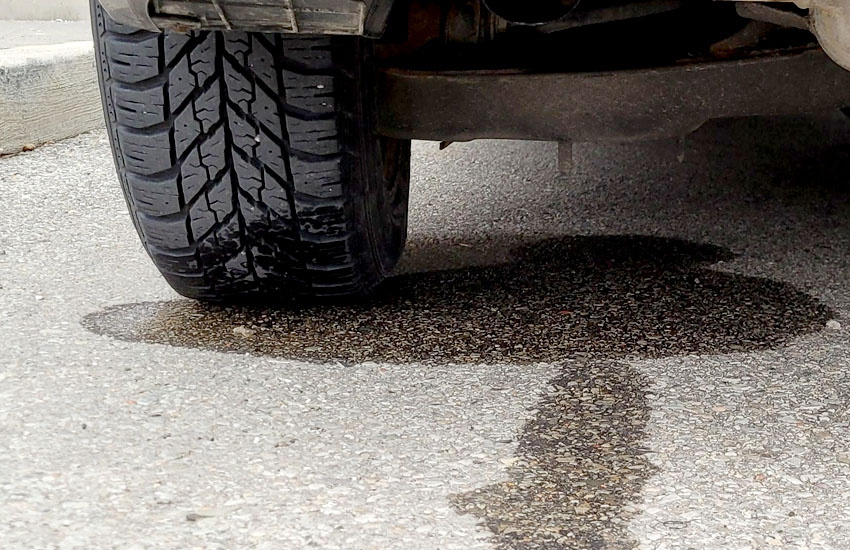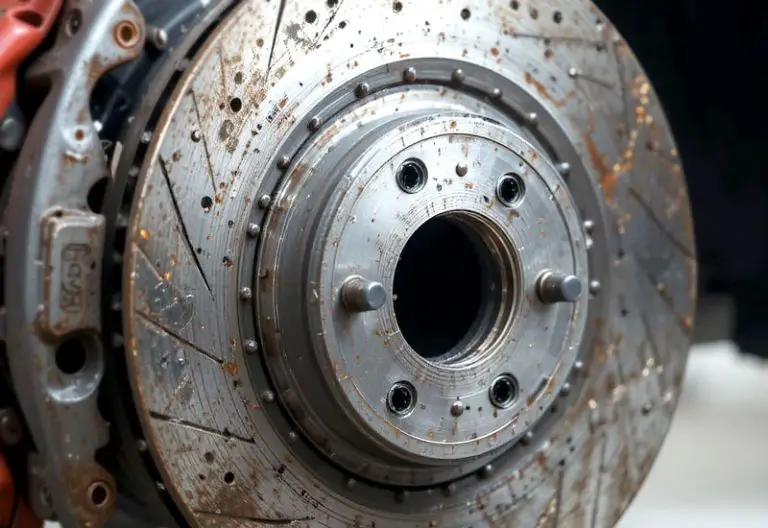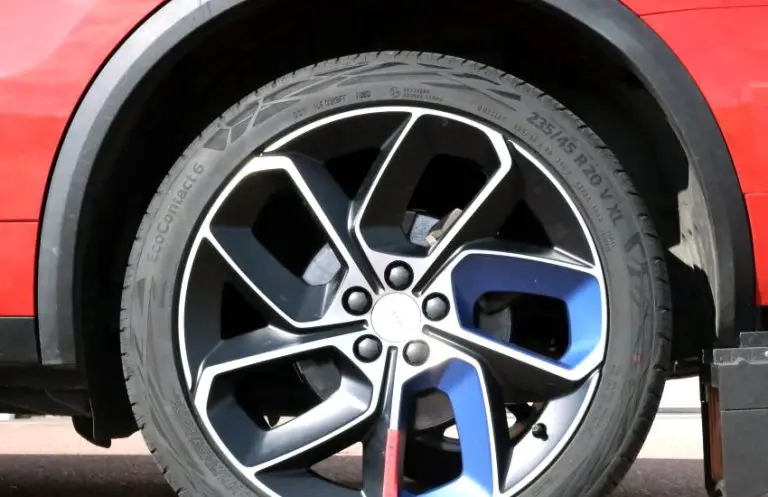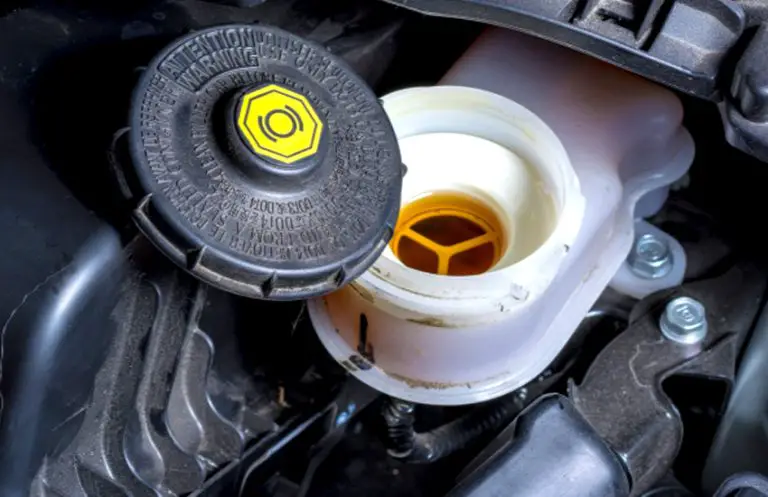Have you ever noticed unsightly stains on your driveway or garage floor? These marks can be a real eyesore, especially if you take pride in maintaining a clean and tidy space. One common source of these stains is brake fluid, which is essential for vehicle operation but can also lead to damaging effects on various surfaces, particularly concrete. In this blog post, we will delve into the impact of brake fluid on concrete surfaces, examining how it can leave stains, the factors that affect stain severity, and most importantly, how to manage and remove these stains effectively.
Understanding Brake Fluid and Its Properties
What is Brake Fluid?
Brake fluid is a type of hydraulic fluid that is crucial for the functioning of a vehicle’s braking system. It transmits force from the brake pedal to the brake pads, allowing your vehicle to slow down or stop safely. There are different types of brake fluids, the most common being DOT 3, DOT 4, and DOT 5. Each type has specific properties, but all brake fluids have similar characteristics when it comes to their chemical composition.
Brake fluid is hygroscopic, meaning it absorbs moisture from the environment. This property is essential for maintaining performance but can also affect surfaces it comes into contact with. The fluid typically contains glycol ethers, which give it its unique properties but can also lead to staining when spilled on porous materials like concrete.
How Does Brake Fluid Stain Concrete?
When brake fluid spills on concrete, it can seep into the surface due to concrete’s porous nature. This absorption process is often what leads to the formation of stains. The fluid reacts with the concrete and can break down the materials in the surface, leading to discoloration.
Over time, this discoloration may become permanent if the stain is not addressed promptly. The stain typically appears as a dark mark, which can vary in intensity based on factors like the amount of fluid spilled, the type of brake fluid, and how long the fluid remains on the concrete before being cleaned up. Understanding this process is vital for vehicle owners and anyone who works with cars regularly.
Factors Influencing Staining Severity
Type of Concrete
The type of concrete plays a significant role in how susceptible it is to staining from brake fluid. Concrete is generally categorized into two main types: smooth and textured. Smooth concrete has a denser surface, which may make it less likely for brake fluid to penetrate deeply and cause staining. On the other hand, textured or porous concrete surfaces can absorb fluids more readily, increasing the chances of stains forming.
Moreover, the finish of the concrete can impact how easily stains are removed. Polished concrete surfaces tend to repel liquids better than rough or unfinished surfaces. Therefore, if you have polished concrete, you may find that brake fluid stains are easier to clean up compared to unpolished areas.
Time of Exposure
Another critical factor is the duration of exposure between the brake fluid and the concrete. The longer the brake fluid sits on the concrete surface, the more likely it is to penetrate and cause a stain. If brake fluid is cleaned up immediately, the chances of it leaving a mark are significantly reduced. Conversely, if the fluid is allowed to sit for an extended period, it can bond with the concrete, making it much harder to remove the stain.
Environmental Conditions
Environmental factors can also influence the staining process. For instance, high temperatures can accelerate the drying of brake fluid, which may lead to a faster reaction with the concrete. If the concrete surface is wet or has moisture present, this could either dilute the fluid and lessen staining or lead to deeper penetration, depending on the situation. Similarly, windy or dry conditions might hasten the evaporation of the fluid but could also lead to uneven staining patterns.

How to Prevent Brake Fluid Stains on Concrete
Regular Maintenance and Inspection
One of the most effective ways to prevent brake fluid stains is through regular maintenance and inspection of your vehicle. This includes checking for leaks in the brake system and ensuring that brake fluid is not spilling onto the concrete surface. If you notice any leaks, it’s crucial to address them immediately.
Regularly cleaning your garage or driveway can also help spot any leaks before they have a chance to seep into the concrete. If you keep your area clean and free of debris, you’ll be able to notice any unusual spots or stains that may indicate a problem with your vehicle.
Use Protective Coatings
Applying a sealant or protective coating on your concrete surface can create a barrier against stains. These products are designed to repel liquids, making it more difficult for brake fluid to penetrate the concrete. When choosing a sealant, look for one specifically formulated for concrete, as these will offer the best protection.
Before applying a sealant, ensure the surface is clean and dry. Follow the manufacturer’s instructions for application, and consider reapplying the sealant periodically to maintain its effectiveness. By taking this proactive step, you can significantly reduce the likelihood of brake fluid staining your concrete.
Prompt Cleanup of Spills
If brake fluid does spill onto your concrete surface, it’s essential to clean it up as quickly as possible. The longer the fluid sits, the greater the risk of staining. Start by using absorbent materials, such as paper towels or rags, to soak up as much fluid as you can.
Once the excess fluid is removed, wash the area with soap and water to help neutralize any remaining chemicals. For stubborn stains, consider using a specialized concrete cleaner or degreaser. Always follow the instructions on the product label, and test any cleaning solution on a small, inconspicuous area first to avoid further damage to the concrete.
Removing Brake Fluid Stains from Concrete
Initial Steps for Cleanup
When dealing with brake fluid stains on concrete, the first step is to act quickly. Use absorbent materials, such as paper towels or rags, to blot the stain as soon as possible. Do not rub the stain, as this can spread the fluid further into the concrete. Instead, gently press down on the area to soak up the fluid without pushing it deeper.
After you have removed as much of the brake fluid as possible, wash the affected area with warm soapy water. This will help break down the remaining fluid and lift it from the concrete surface. Rinse the area thoroughly with clean water to remove any soap residue.
Using Concrete Cleaners
If the stain persists after your initial cleaning, you may need to use a concrete cleaner specifically designed for tough stains. These products are formulated to penetrate deep into the concrete and break down stubborn substances like brake fluid. Follow the manufacturer’s instructions carefully when applying the cleaner.
To use a concrete cleaner, apply it directly to the stain and allow it to sit for the recommended amount of time. Then scrub the area with a stiff-bristle brush to help lift the stain. Rinse thoroughly with water to remove any remaining cleaner.
Power Washing for Stubborn Stains
For particularly stubborn brake fluid stains that resist cleaning, a power washer can be an effective solution. Power washing uses high-pressure water to remove deeply embedded stains and debris. Before using a power washer, ensure that the concrete surface is suitable for this method, as excessive pressure can damage older or weaker concrete.
When using a power washer, start with a lower pressure setting and gradually increase it as needed. Aim the nozzle at the stain and move it back and forth to thoroughly clean the area. Afterward, rinse the surface with clean water to ensure no cleaner remains.
I hope this blog post has provided you with valuable insights into the impact of brake fluid on concrete surfaces and how to manage stains effectively. By understanding the properties of brake fluid, the factors influencing staining, and the best practices for prevention and removal, you can maintain the appearance of your concrete surfaces and protect them from unsightly stains.
Are These Questions in Your Mind?
Is it safe to use brake fluid?
Yes, brake fluid is generally safe when used as intended, but it is essential to handle it with care and avoid contact with skin and eyes.
Can brake fluid cause permanent damage to concrete?
Yes, if left untreated, brake fluid can penetrate concrete and cause permanent stains.
Do I need to wear gloves when cleaning brake fluid spills?
Yes, wearing gloves is advisable when cleaning up brake fluid to protect your skin from harmful chemicals.
Is it okay to use household cleaners on brake fluid stains?
Some household cleaners may work, but it’s better to use products specifically designed for concrete cleaning for the best results.
Can I use vinegar to clean brake fluid stains from concrete?
Vinegar may help with light stains, but for tough stains, specialized concrete cleaners are more effective.
Is there a specific time limit to clean brake fluid spills?
The sooner you clean up brake fluid spills, the better. Cleaning within a few minutes greatly reduces the risk of staining.
Can brake fluid stains affect my vehicle’s braking performance?
Brake fluid stains on concrete do not affect your vehicle’s braking performance; however, any leaks should be addressed immediately for safety.
Do I need to seal my concrete to prevent stains?
Yes, applying a sealant can help protect concrete from staining and make cleaning easier.
Is brake fluid harmful to the environment?
Brake fluid can be harmful to the environment if not disposed of properly, so it’s essential to follow local guidelines for disposal.
Can I prevent brake fluid spills altogether?
While spills may occur, regular vehicle maintenance and prompt cleanup can significantly reduce the risk of stains.


